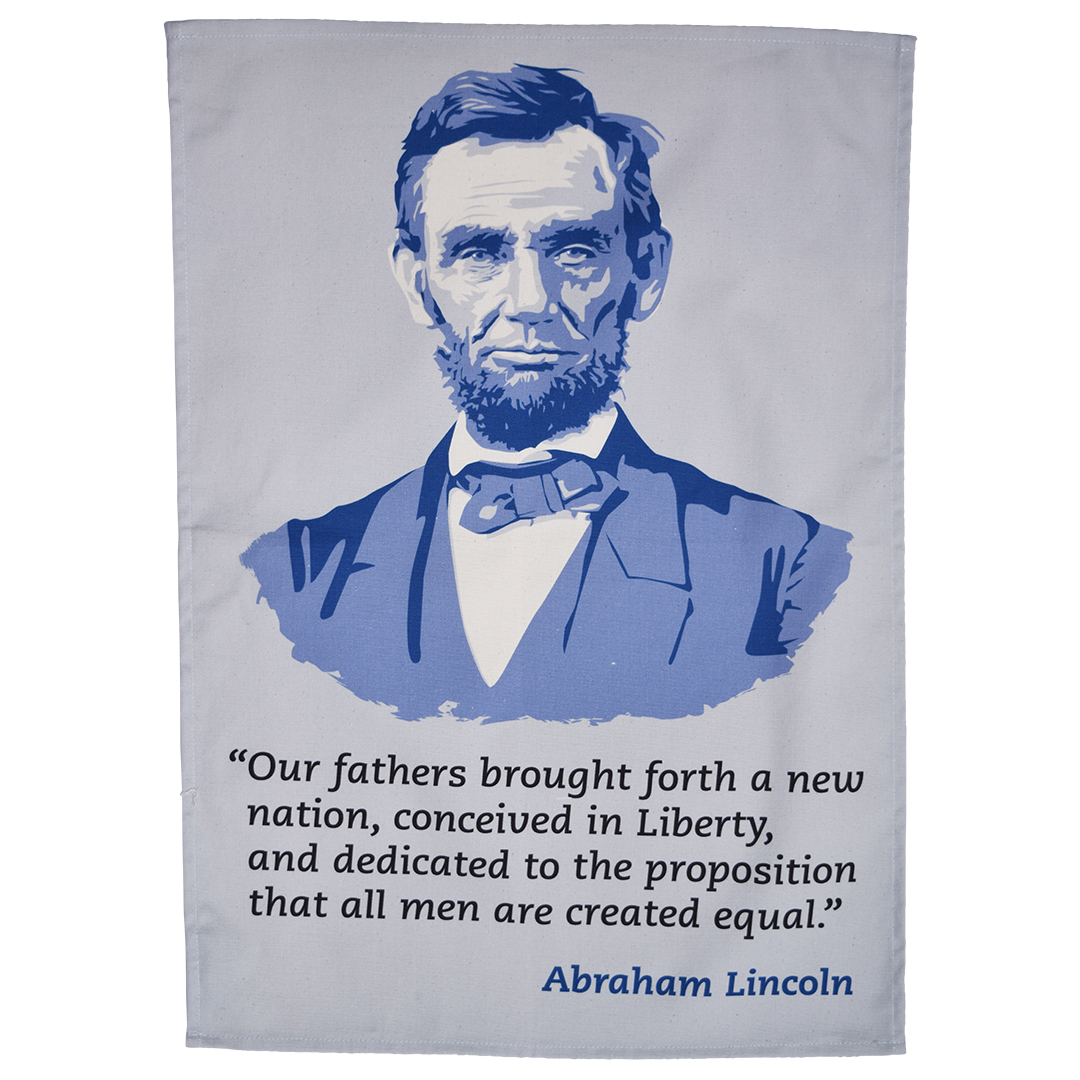Brother Against Brother: Abraham Lincoln and the US Civil War
Posted by Pete on Nov 6th 2022

The story of Abraham Lincoln's election and the fight to end slavery in the United States...
On Tuesday 6 November 1860, Americans voted for a new president.
It was a tight election, but the candidate who came out on top was a certain anti-slavery Republican from Illinois.
His name was Abraham Lincoln and his election as the country’s 16th President sparked the US Civil War.
On this day in 1860, Lincoln was elected as the first Republican President of the United States
Click to view our Abraham Lincoln tea towel
Of course, tensions had been building for a long, long time.
The acceptance of slavery by the Founding Fathers had planted a timebomb in the heart of the new republic.
As activists like
Frederick Douglass made clear, the enslavement of human beings was a monstrous violation of the ideals of liberty and equality which the U.S. had supposedly been built on.
There was already a long history of
resistance to slavery in North America, especially among the enslaved themselves.
But it was in the mid-19th century that things really began to heat up.
Having escaped slavery at the age of 20, Frederick Douglass became one of the most vociferous abolitionists in the US
Click to view our Frederick Douglass tea towel
Westward expansion – achieved by the violent expulsion of indigenous peoples – had been picking up pace since American Independence.
Pro-slavery extremists in the South wanted slavery extended into the new territories and soon-to-be states out West.
Anti-slavery forces, on the other hand, wanted slavery limited to the existing slave states – at this point, only more
radical abolitionists wanted slavery rooted out of the South, too.
This had been a tension for a while, and the existing ‘solution’ was the Missouri Compromise of 1820, which limited slavery to western lands south of the 36°30’ parallel.
But in 1854, this arrangement was tossed out by pro-slavery forces in Congress.
The Kansas-Nebraska Act replaced the territorial limit on slavery with a disfigured idea of ‘popular sovereignty’. The voters in each new state would decide whether to allow slavery there.
Some supporters claimed this would solve the slavery problem for good, ‘democratically’. They were either naïve or lying.
The 1854 Act only militarised the West. Pro- and anti-slavery forces tried to flood the new Territories with settlers to get majorities there.
A shooting war actually broke out in Kansas, five years before the Civil War proper. The gloves were officially off.
Things became even more tense when the pro-slavery Supreme Court struck down the Missouri Compromise as a violation of slaveholders’ property rights and declared African Americans could not be citizens.
The trouble was that pro-slavery forces were able to dominate the federal government because of some anti-democratic tricks in the Constitution which gave wealthy whites in the South disproportionate power.
But even these cheat codes couldn’t work forever.
A year before Lincoln's election, the abolitionist John Brown led an anti-slavery raid on Harper's Ferry, terrifying pro-slavery forces
Click to view our John Brown tea towel
In November 1860, with the largely pro-slavery Democrats split between Southern hardliners and slightly less extreme Northerners, Abraham Lincoln was elected President.
He was the first victorious nominee for the newly founded, anti-slavery Republican Party.
But this historic event sent the supporters of slavery into a frenzy.
In the shadow of John Brown’s courageous
Raid on Harper's Ferry in 1859, which had tried to spark a mass slave revolution in the South, their arrogance turned into fear.
Now that, for the first time, an anti-slavery Party controlled the White House, the blood-soaked wealth of the Southern elites was at risk.
That is, so long as the South remained within the United States of America.
Secessionists, who were actually a minority in much of what became the Confederacy, exploited Lincoln’s election to break with the federal government.
After a tense few months, full-blown Civil War began in April 1861.
It was a bloody war, with families divided and brother fighting against brother.
But rather than preserving slavery, this war became an emancipation revolution, and eventually brought slavery to an end in the United States.
Lincoln was re-elected in 1864, only to be assassinated shortly after the Confederates surrendered, and slavery was abolished throughout the U.S. by constitutional amendment.
The Lincoln Presidency, begun 162 years ago today, was among the most radical in U.S. history.



